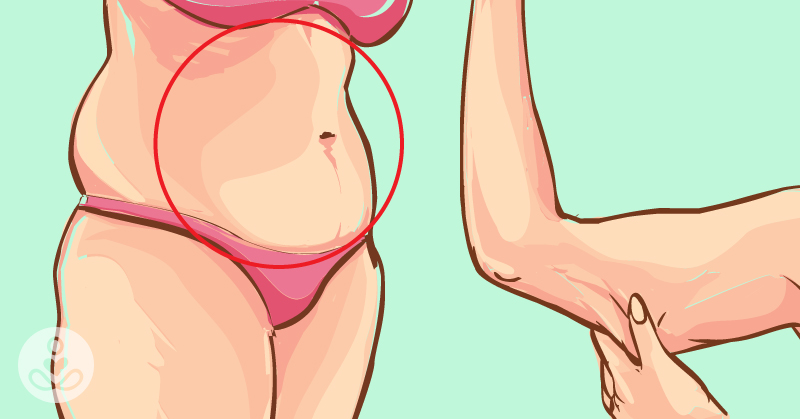Protein is an essential macronutrient. It is necessary for various bodily functions, tissue repair, immune system function, and hormone synthesis. But despite its importance, inadequate protein intake is a pretty consistent problem. Poor protein intake can lead to a spectrum of health issues when left unchecked. Recognizing the signs of protein deficiency is key for addressing nutritional imbalances and promoting overall well-being. Here are seven common signs of protein deficiency and some strategies to come back from them.
1. Swelling
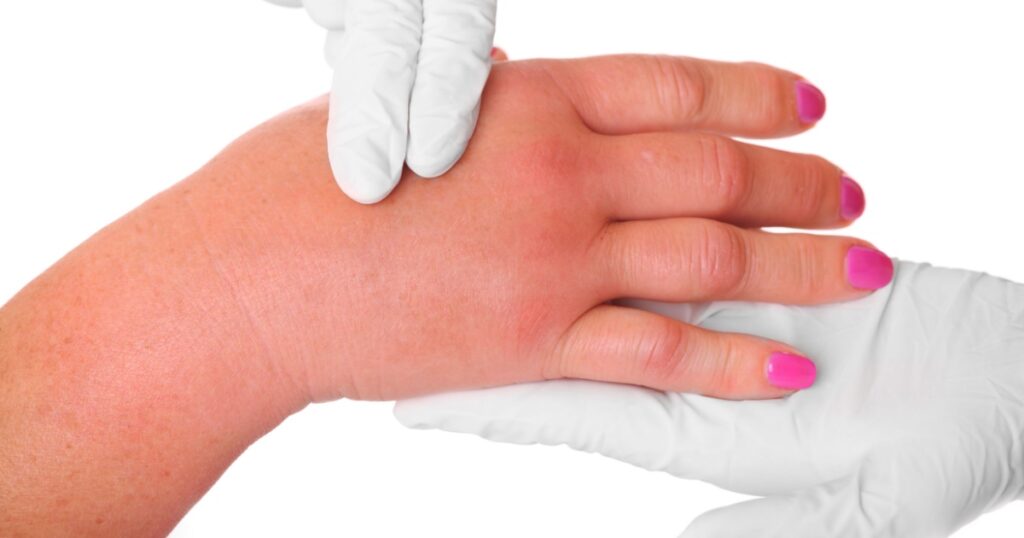
Edema, swelling from fluid retention, is a classic symptom of severe protein deficiency. The swelling can occur in any part of the body, so it is important to stay vigilant. To combat it, it’s essential to increase protein intake gradually through protein-rich foods such as lean meats, dairy products, legumes, nuts, and seeds. Also, incorporating foods that are rich in potassium, like bananas, spinach, and sweet potatoes, can help regulate fluid balance in the body and alleviate swelling.1
Read More: 11 Superfoods You Want to Help Build Muscle and Lose Fat – and They’re Not Just Protein
2. Skin, Hair, and Nail Problems

Protein deficiency often manifests in skin, hair, and nail abnormalities. Individuals should prioritize protein-rich foods in their diet and ensure they’re getting enough essential vitamins and minerals. Having foods rich in biotin, vitamin C, and zinc can support skin and hair integrity. Additionally, staying hydrated and practicing good skincare habits can go a long way with good dietary measures.2
3. Infections are More Gross
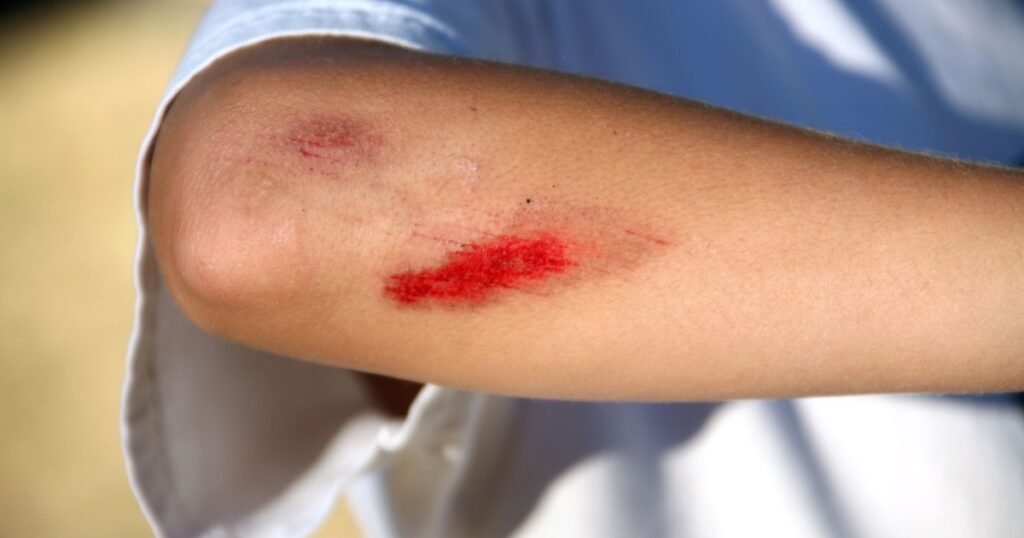
A compromised immune system is a clear sign of protein deficiency, which means heightened susceptibility to infections. To ‘beef up’ (see what we did there?) immune function and combat infections, you should focus on consuming adequate protein and a variety of immune-boosting nutrients. Foods rich in vitamins C and D, zinc, and antioxidants can help strengthen the immune system. Also, incorporating probiotic-rich foods like yogurt, kefir, and fermented vegetables can support gut health and increase your immune function.3
4. Loss of Muscle Mass

Muscle wasting happens when there is a breakdown of skeletal muscle tissue, a common outcome of protein deficiency. To prevent muscle loss and promote muscle growth and repair, individuals should (obviously) get more protein-rich foods in them and also engage in regular strength training exercises. Nothing crazy, but your body is an incredibly efficient machine – if you don’t use it, you’ll lose it. So make sure your muscles aren’t on the chopping block. Consuming protein sources with a complete amino acid profile, like animal meats, dairy products, and soybeans, helps provide the necessary protein for muscle synthesis and repair.4
Read More: The Most Nutritious Sources of Proteins (According To Science)
5. Decreased Bone Development and Density
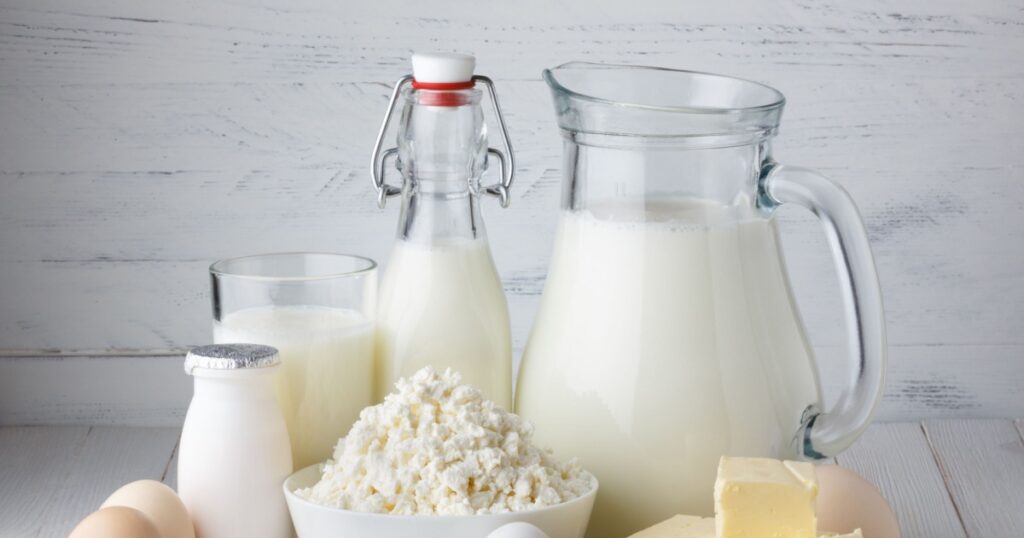
Protein deficiency can compromise your bone health, putting you at a higher risk of fractures and other skeletal issues. Make sure you’re getting an adequate amount of protein as well as calcium-rich foods. Remember your dairy products, leafy greens, fortified plant-based milk alternatives, and calcium-fortified foods to help meet calcium needs and promote bone strength. Also, weight-bearing exercises like walking, jogging, and resistance training can enhance bone density and reduce the risk of osteoporosis.5
6. Stunted Growth in Children

Children are particularly vulnerable to protein deficiency, as adequate protein is not only essential for growth and development but also out of their control. It is crucial to provide protein-rich meals and snacks throughout the day to your children. Incorporating lean meats, poultry, eggs, dairy products, and nuts into children’s diets early can ensure they receive everything their body needs for optimal growth. Be sure to monitor children’s growth and consult with healthcare professionals to help identify and address any potential nutritional deficiencies.
7. Weight Loss or Gain

Protein deficiency disrupts the metabolic processes, resulting in unintended weight changes. To maintain a healthy weight and support a healthy metabolism, individuals should focus on consuming adequate protein along with a balanced diet. These are your protein sources, whole grains, fruits, vegetables, and healthy fats (all the stuff we learned in school about a healthy diet, it’s legit). Balanced meals promote the feeling of fullness, regulate appetite, and support weight management goals. Adding some light but regular physical activity and healthy lifestyle habits can complement dietary efforts in achieving and maintaining a healthy weight. Diet and exercise…who knew?
Read More: Protein-Packed Oatmeal Recipe
Combatting Protein Deficiency: What’s the Right Amount?
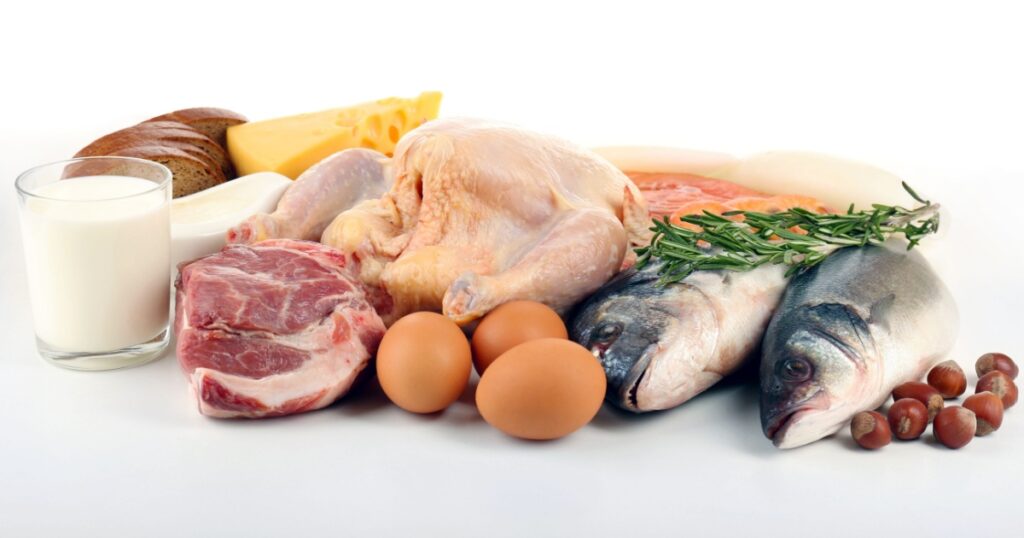
It’s easy to say “Have the right amount of protein” but what is the right amount? To avoid deficiency (the very lowest you should be going), you should be consuming 0.8 grams of protein per 1kg of body weight (2.2lbs). Meaning if you’re 125lbs, you should be consuming a minimum of 45 grams of protein daily. This number is the bare minimum for your body to have what it needs on a daily basis. For individuals trying to grow muscles for strength training, this number nearly doubles. Make sure your needs are being met for your goals, because if you’re trying to get bigger and you aren’t feeding your body, you run the risk of burning your body out from the inside.
The Bottom Line
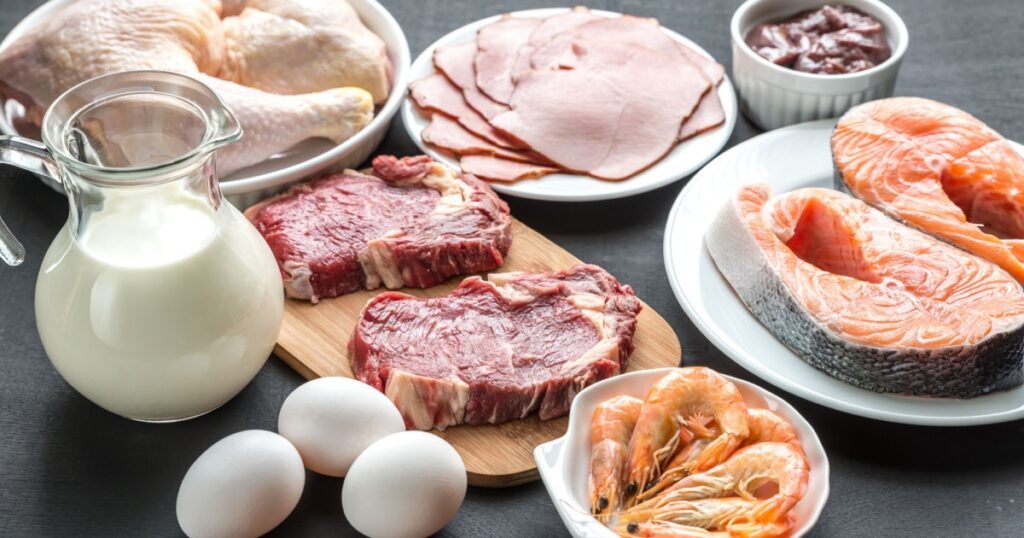
Recognizing the signs of protein deficiency is imperative for addressing nutritional imbalances and promoting overall health. By prioritizing protein consumption through a diverse and balanced diet rich in nutrient-dense foods, we can avoid the risks related to deficiency and support optimal bodily function. Incorporating actionable strategies and consulting with healthcare professionals give us better health outcomes and enhance overall well-being.
Read More: Warning as Man Dies After Single Teaspoon of Caffeine Powder in Protein Shake
Sources
- “8 Signs and Symptoms of Protein Deficiency.” Healthline. Atli Arnarson BSc, PhD. October 31, 2017.
- “8 Protein Deficiency Symptoms.” Health. Jillian Kubala, RD and Mikayla Morell. September 5, 2023.
- “5 Surprising Signs You May Not Be Getting Enough Protein.” Eating Well. Ally Sorrells. July 6, 2022
- “6Protein and Amino Acids.” NCBI
- “Protein-Energy Undernutrition (PEU).” Merck Manuals. Shilpa N Bhupathiraju. October 2023.
- “Are you getting too much protein?” Mayo Clinic Health System. Kristi Wempen, R.D.N. April 29, 2022.
